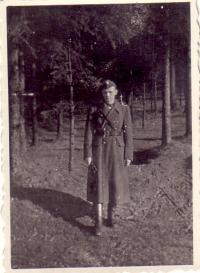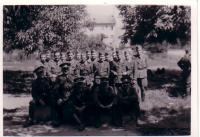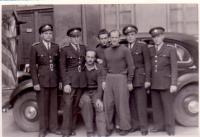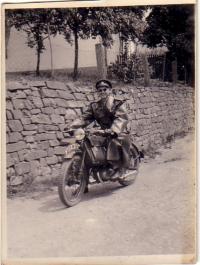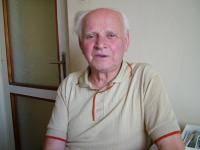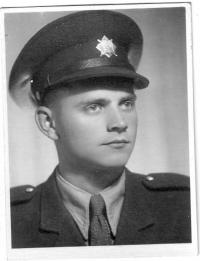„Let those chieftains grab sabers and kill each other off“
Zdeněk Závěšický was born on October 7, 1922, in Stěbořice, near Opava. His father was a blacksmith and his mother an agricultural worker. He attended the local elementary and municipal school. In 1937 he started his vocational training as a blacksmith and until 1945 he was occupied by his profession. In April 1945, he was cut off in the village of Kraváře for a couple of days by the advance of the Red Army. The village was liberated on April 20, 1945, and Mr. Závěšický then joined the national guard, whose duty it was to protect the property and safety of the village inhabitants. He became a member of the National Security Corps (SNB). In October 1945, he was assigned to a police station in Horní Těrlicko. In 1946, he attended the police academy. He was shortly with the police in Brno and then he requested a transfer and was placed in Opava. In August 1947, he participated in the operations of the SNB against groups of Ukrainian nationalists, albeit not in direct combat. In February 1948, he was still at the police station in Opava. As a policeman, he had to hand in an application for the Communist party. In the fifties, he was the commander of a police station in Bílovec but he left the police in 1953. He went to the Strojosvit factory, where he first worked as a locksmith and then as an instructor for locksmith apprentices. He started to study an engineering school and in order to be eligible for becoming the supreme head-man, he started to study the VUML (The Evening School of Marxism-Leninism). He was dismissed from the party in the post-68 period, the so-called „Normalization“. However, this did not infringe on his professional career.

